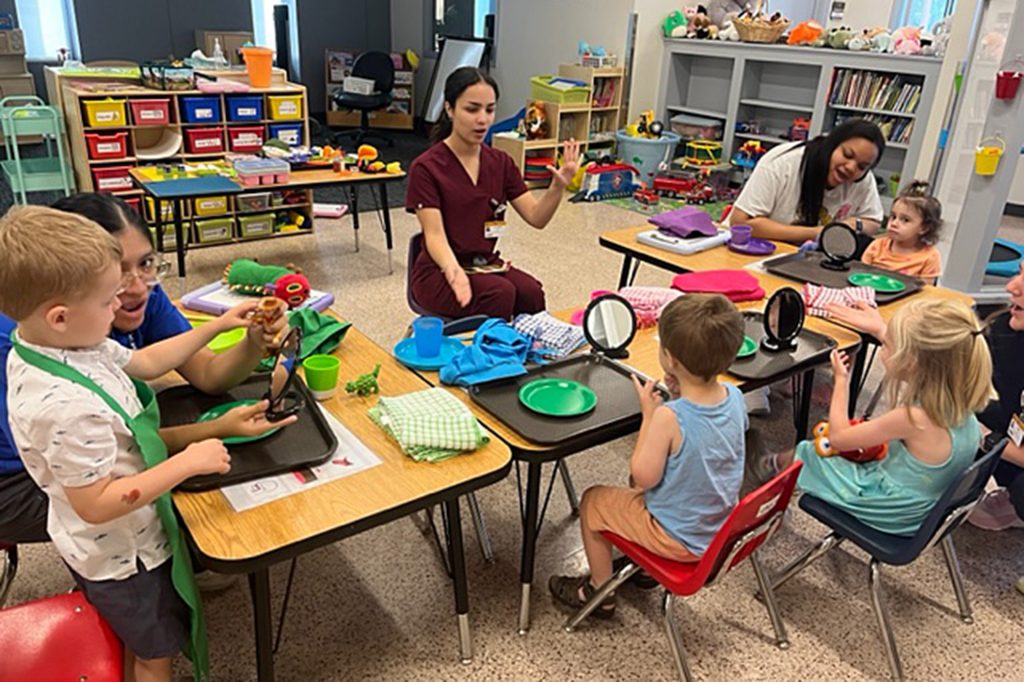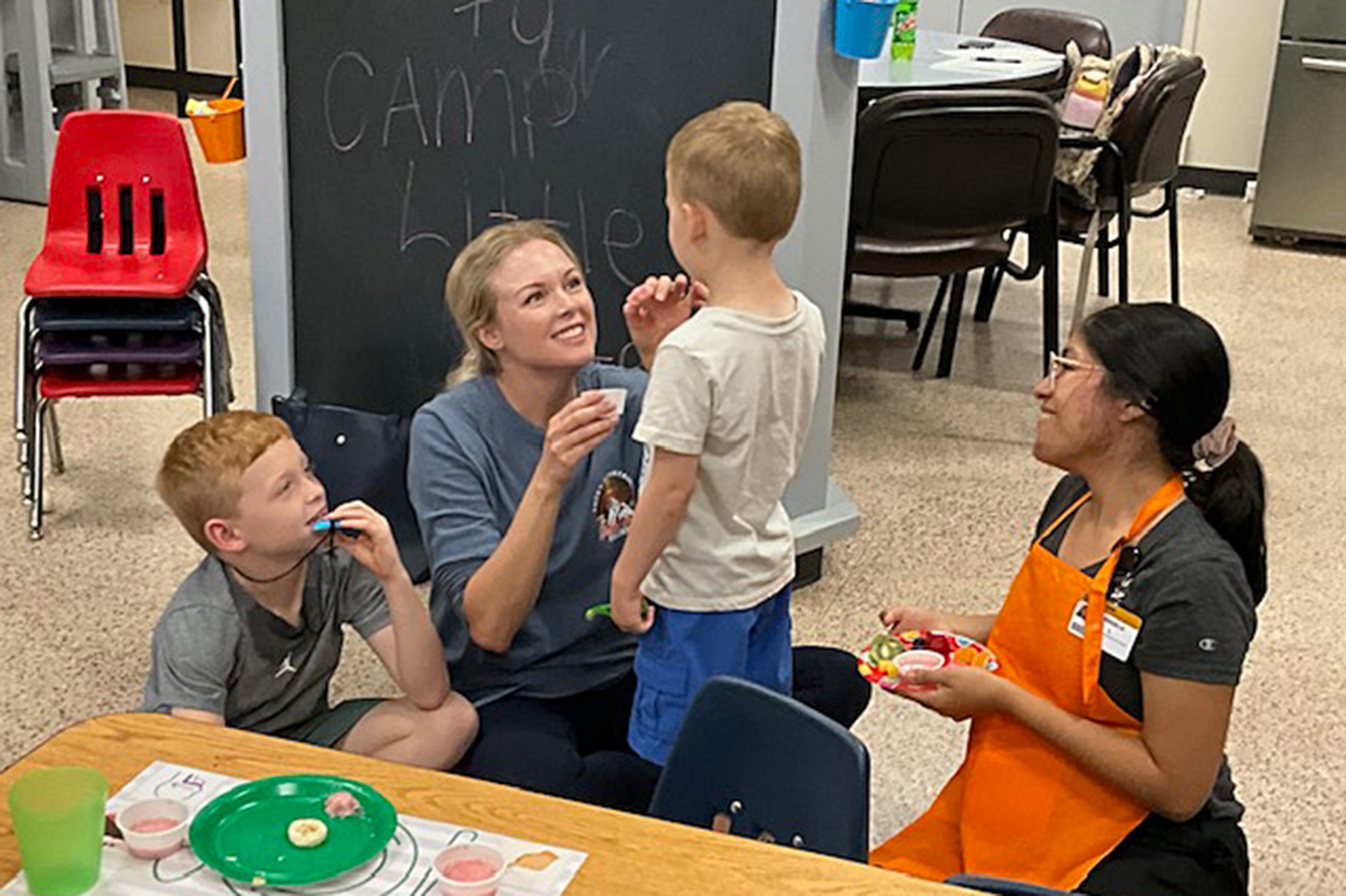Nov. 13, 2025

Story by Ryan Gauthier, rjgauthier@health.missouri.edu
In the cheerful chaos of the Robert G. Combs Language Preschool at the University of Missouri, a pilot program made a monumental difference for families struggling with children who have feeding challenges. Dubbed Project Little Bites, the innovative program used chef hats, kid-safe knives and plenty of patience to turn mealtime battles into moments of fun and discovery.
Christi Baker, director of the preschool and an associate clinical professor with the Department of Speech, Language and Hearing Sciences, said she had been considering offering a program focused on feeding issues. Once renovations to the preschool added a dedicated kitchen space this past spring, Baker said the idea finally had a home.
But Baker said nothing would have happened without the enthusiasm of speech-language pathology students Ana Dolsky, Kayla Shelby, Claudia Rodriguez and Angela Lopez, who helped move the project forward.
“The students really were the push,” Baker said. “They wanted a feeding group. They wanted to apply what they had been learning in class to this subcategory that’s become a really niche but more recognized part of our field.”
Project Little Bites is designed to address a spectrum of feeding issues, from extreme picky eating to more complex problems like Avoidant/Restrictive Food Intake Disorder. At its core, Baker said the program assesses each participant individually and then encourages them to experiment and interact with foods they might otherwise avoid.
The program centers on a concept known as the food hierarchy, a step-based process of exposure and desensitization. Each session begins with a theme: fruits, vegetables, tacos and pizza were all on the menu this summer. After a hello song, a book and a mindfulness exercise, the kids participate in food exploration that involves interacting with foods without any pressure to eat.
Baker said this stage of the process is incredibly important for kids who might typically back away from the table and disengage.
“Suddenly, they’re touching and playing with sticky things that they’ve never touched or would even tolerate,” she said.
By making these interactions more playful and never pressuring the children to eat the foods — though it’s completely fine if they choose to taste anything of their own accord — Baker said there are fewer tears and more curiosity. The overall focus is on the overall process rather than the immediate outcome, she said.
“We’re not looking for them to eat a whole plate of anything,” Baker said. “It’s more about can we break through that barrier to get them to taste and explore and feel comfortable around food.”
For Brooke Tallman, whose 3-year-old son Elliott participated in the program, Project Little Bites has been a breakthrough. Elliott, who has struggled with feeding issues since he was 15 months old, would never touch a slice of pizza made at home. During the pizza-themed week, however, Elliott independently ate some pizza without any prompting.
“It was amazing to see him actually do that,” Tallman said. “This is groundbreaking to me.”
Elliott’s progress wasn’t limited to pizza. Tallman said her son ate a whole strawberry for the first time in months and even bit into an orange bell pepper, a testament to his newfound willingness to explore.

Ana Dolsky, one of the SLP students who helped plan Project Little Bites, underscored the importance of understanding the emotional toll that feeding issues can take on families.
“Especially with a lot of them, food’s been so discouraging for so long,” Dolsky said. “I feel like us just providing a different, more positive perspective can be comforting for them.”
Fellow student-clinician Kayla Shelby said positive framing of seemingly small events was key to helping the families see the progress and know that something was actually happening because of the program.
“Something that seems very small is a big win,” Shelby said. “Kissing a strawberry seems so minor to other people, but to these kids who have had these negative experiences with foods and have trouble with these, it’s big.”
Baker hopes to make Project Little Bites a permanent offering for the preschool. She plans to connect with the parents of participants in the coming weeks to hear how things are going at home and monitor ongoing progress.
“I’m interested to see where things go from here,” she said.
By creating a playful and pressure-free environment, Project Little Bites is helping families replace anxiety with curiosity. The program’s success offers hope, showing parents that small victories like kissing a strawberry or touching a dollop of marshmallow fluff can mark the beginning of a healthier relationship with food.
